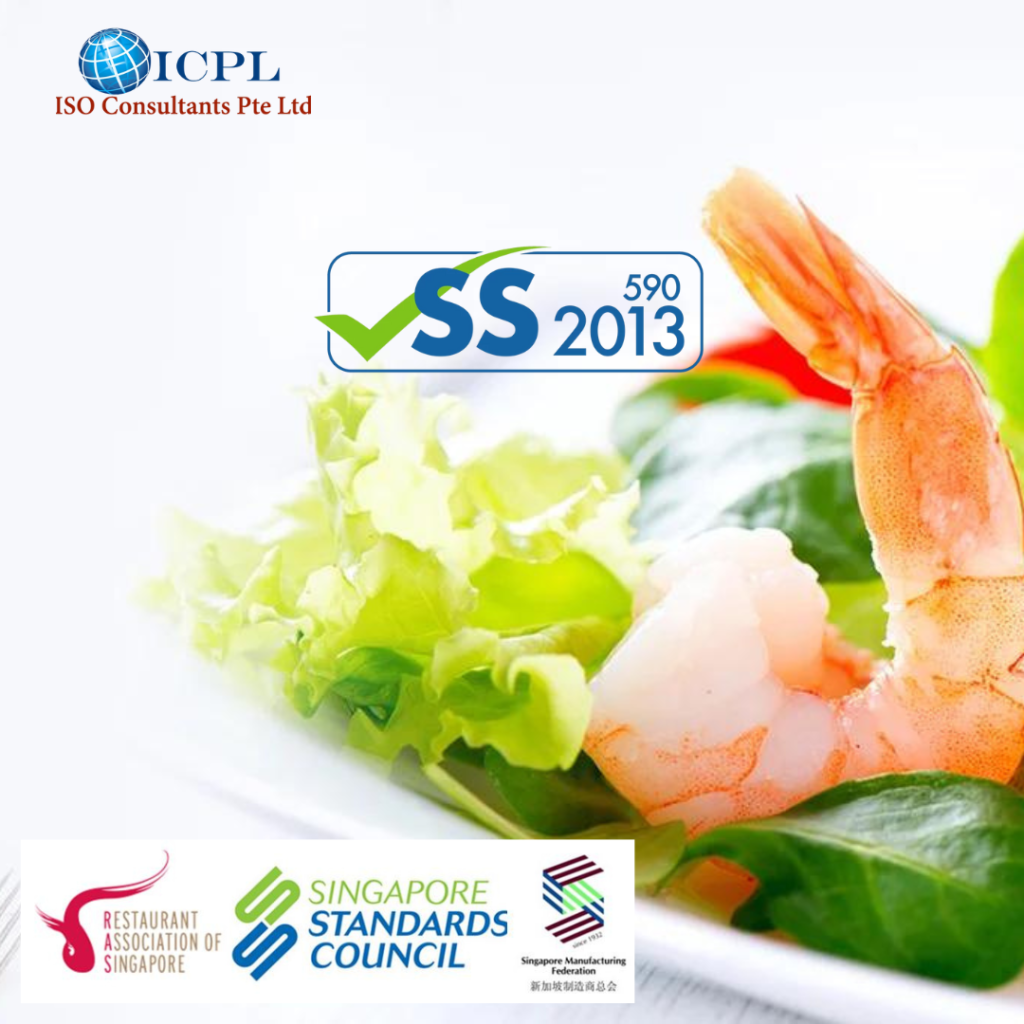SS 590:2013 IN SINGAPORE STANDARD FOR HACCP-BASED FOOD SAFETY MANAGEMENT SYSTEMS
SS 590:2013 IN SINGAPORE SAC HACCP Document No. 2 will cease to exist on 9th January 2016 and all organisations certified with SAC HACCP Document No. 2 will need to upgrade to SS590:2013 before the given deadline.
The new standard in Singapore is closely aligned to the international ISO food safety management system (ISO 22000). SS 590:2013 IN SINGAPORE covers the requirements for sourcing, preparation, processing, manufacturing, packaging, storage, transportation, distribution, handling, and offering for sale or supply of food in any sector of the food chain.
You are able to upgrade from HACCP to SS 590 before the old plan ceases to exist
Enhance branding of companies
Manage your organisation’s Food Safety
Be a pioneer in achieving the new standard

Contact
- ISO Consultants Pte. Ltd. 30 Petain Rd, Singapore 208099.
- +6585993818
- info@isoconsultant.sg
Brochures
View our 2020 SS 590:2013
brochure for an easy to read guide on all of the services offer.
CONSULTING STAGES OF SS 590:2013 IN SINGAPORE
PRELIMINARY ASSESSMENT
HACCP PLAN DEVELOPEMENT
VALIDATION OF HACCP PLAN
TRAINING AND IMPLEMENTATION
VERIFICATION
CONTINUOUS IMPROVEMENT
- The first step in the consulting process involves a preliminary assessment of the company's food safety program.
- This includes an initial site visit to assess the physical facility and review current food safety practices and documentation.
- A gap analysis may be conducted to identify areas of non-compliance with regulatory requirements and international food safety standards.
- Once the preliminary assessment is completed, the HACCP consultant will work with the company to develop a comprehensive HACCP plan tailored to the specific needs of the business.
- This will involve identifying potential hazards and assessing the risk associated with each hazard.
- Our consultant will also help the company establish critical control points (CCPs) where controls can be implemented to prevent, eliminate or reduce hazards to acceptable levels.
- After the HACCP plan is developed, the consultant will validate the plan to ensure that it is effective in controlling hazards.
- This may involve conducting a series of tests or simulations to ensure that the controls are working as intended.
- Once the HACCP plan is validated, the consultant will work with the company to implement the plan, including providing training to employees on the HACCP principles and how to implement the plan effectively.
- Our consultant may also provide ongoing support to the company during the implementation process.
- After the HACCP plan is implemented, the consultant will conduct regular verification activities to ensure that the plan continues to be effective in controlling hazards.
- This may involve conducting internal audits, reviewing records, and conducting periodic testing to ensure that the controls are still effective.
- The final stage of the consulting process involves ongoing monitoring and continuous improvement of the HACCP plan.
- Our consultant will work with the company to identify areas for improvement and implement changes to the plan as necessary to ensure that it remains effective in controlling hazards.
How to Obtain SS 590:2013 Certification for your Company?
